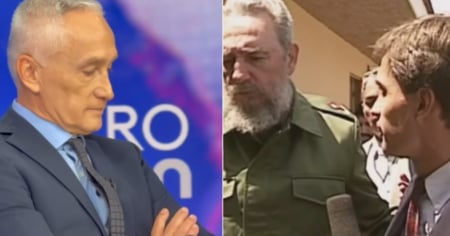The president of Uruguay, Luis Lacalle Pou, who is openly opposed to Latin American dictatorial regimes, used his speech at the 79th United Nations General Assembly to denounce the recent electoral fraud committed by Nicolás Maduro in Venezuela.
In his final address as the head of the Uruguayan state, Lacalle Pou incisively addressed the political crisis in Venezuela, describing the regime as "authoritarian and intolerant," and denouncing the "numerous human rights violations" and abuses reported within Venezuelan territory.
"Many governments and world leaders have looked the other way. Some due to lack of interest, and many others out of self-interest. This is about condemning the fraud, condemning the regime, not just addressing a flawed electoral process," he argued from the UN headquarters in New York.
The leader urged various governments to take action to prevent the spread of "authoritarianism" in Latin America and other regions.
"It is time to take action for Venezuela, for the Venezuelans, and also, if I may add, if the international community remains tolerant of these attitudes, we can only wait to see which country will be the next to face what Venezuelans are enduring," he emphasized.
On that very podium last year, Lacalle Pou firmly reiterated his criticisms of "authoritarian populisms," alluding to regimes in Cuba, Venezuela, and Nicaragua without mentioning them by name. On several occasions, the Uruguayan leader has emphasized how these governments not only violate human rights but also impoverish their people, urging the international community to take a more decisive stance.
This call to action was not isolated. In January 2023, during the CELAC Summit in Buenos Aires, Lacalle Pou criticized the organization for accommodating governments that, in his view, do not respect democracy or human rights. In his speech, he emphasized the importance of overcoming ideological divisions to focus on the defense of fundamental rights.
In line with this critical stance, last Tuesday, Argentine President Javier Milei also issued strong criticisms, this time aimed at the UN, for allowing countries like Cuba, Venezuela, and Iran to be part of its Human Rights Council.
Milei referred to these countries as "bloodthirsty dictatorships" and condemned that they should not be part of an organization that defends human rights.
Chilean President Gabriel Boric also expressed his concern over the authoritarianism and the human rights violations occurring in Venezuela, which were exacerbated by the electoral fraud committed by Maduro and his government on July 28.
Boric stated that Latin America is "facing a dictatorship that seeks to steal an election, that persecutes its opponents, and is indifferent to the exile, not of thousands, but of millions of its citizens."
He urged the pursuit of a "political solution" to the Venezuelan crisis, while calling for the recognition of the "victory of the opposition," led by former candidate Edmundo González Urrutia and María Corina Machado, and for advancing "a peaceful transition to a formal democracy."
Filed under:
